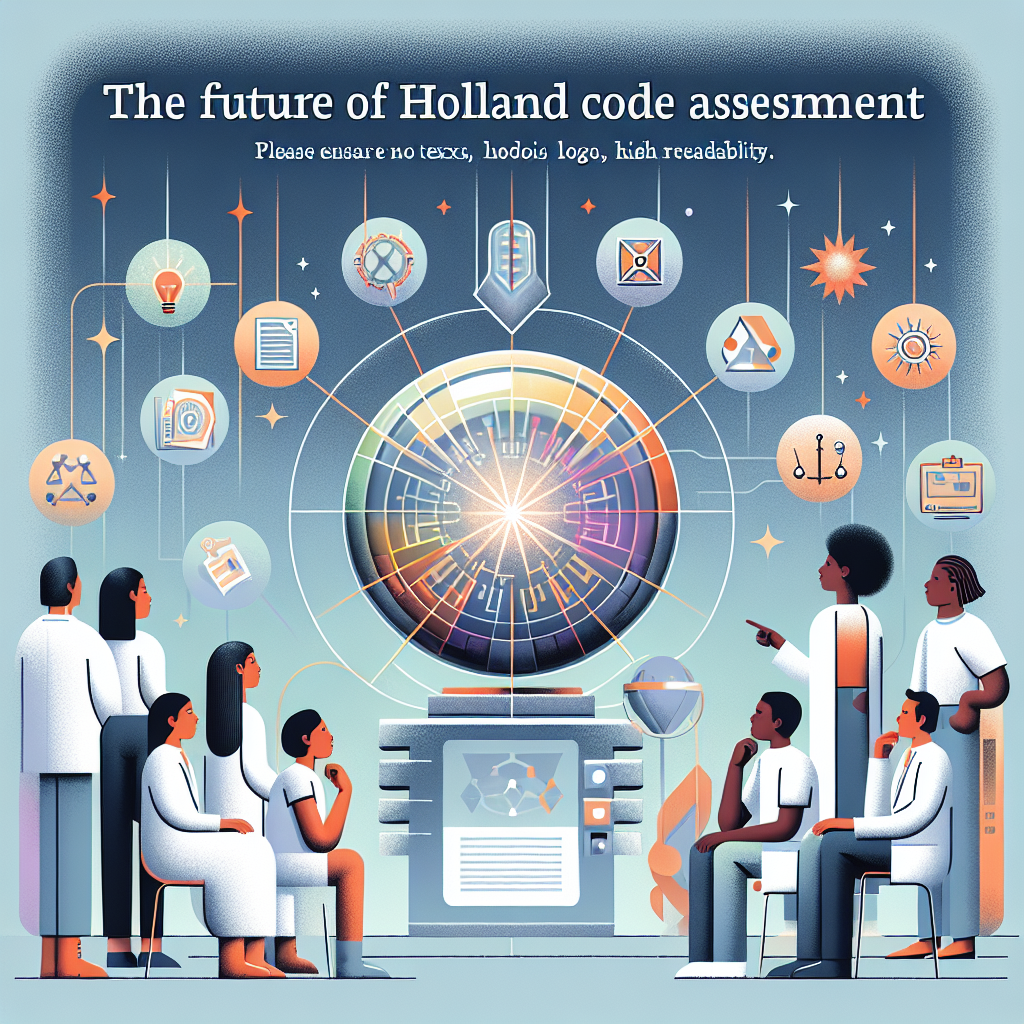The Future of Holland Code Assessment: What To Expect. As career guidance tools evolve, the familiar Holland Code—also known as RIASEC—will be reshaped by technology, data, and a deeper understanding of human interests. This article explores the likely directions of Holland Code assessments, how they may integrate with labor-market insights, and what jobseekers and career counselors can expect from next-generation interest inventories.
Why the Holland Code still matters
Even as workplaces transform, the core idea behind the Holland Code—matching personal interests and environments to suitable occupations—remains valuable. It provides a concise language for discussing vocational fit, helps people identify clusters of compatible tasks, and supports career exploration across life stages. New tools will likely keep this conceptual framework but expand its precision and applicability.
Emerging trends in Holland Code assessment
Several converging trends will shape the future of interest assessments:
- AI-driven personalization: Machine learning will tailor item selection and interpret nuanced response patterns to produce individualized profiles rather than coarse category scores.
- Lifelong and micro-credential awareness: Assessments will link interest profiles to short courses, badges, and stackable credentials aligned with current skills demand.
- Real-time labor-market integration: Assessment reports will point to occupations with growing demand and geographic opportunities using live labor-market data.
- Context-aware measurement: Tools will consider situational factors—remote versus in-person work, part-time options, and workplace culture preferences—beyond broad RIASEC types.
- Inclusive design: Questions and interpretation will be refined for cultural fairness, neurodiversity, and nontraditional work histories.
Tech and data: what changes
Expect assessments to move from static, self-report questionnaires to adaptive platforms that combine surveys with behavioral signals. For example, a modern system might integrate short situational judgment tasks, interaction logs from simulated tasks, and optional linked-portfolios or micro-assessments. Data fusion will support more actionable recommendations—pointing users to specific roles, transferable skills to develop, and near-term training options.
Practical impacts for counselors and jobseekers
Career professionals will have richer profiles to inform counseling sessions. Instead of simply assigning a Holland type, advisors will discuss probable career pathways, required competencies, and targeted learning opportunities. Jobseekers will receive dynamic, prioritized lists of job families and courses that match both their interests and local labor demand. For those considering a midlife transition or re-entry into the workforce, these tools can clarify realistic, fulfilling options.
For people exploring second careers, specific resources can help translate interest profiles into actionable steps. For instance, those looking at later-life career shifts may find tailored support in programs focused on adult learners and career reinvention; see a practical resource for starting fresh new career paths for women at 50 for ideas on retraining and re-entry strategies.
Challenges to overcome
Several issues must be addressed to make future assessments trustworthy and equitable:
- Transparency in algorithms and feedback so users understand recommendations.
- Protection of sensitive personal and behavioral data.
- Validation across diverse populations and work contexts.
- Avoiding overreliance on automated matches that may obscure systemic barriers to access.
How to interpret modern Holland-inspired reports
When you receive a modern Holland-style report, look for three elements:
- A concise interest profile that explains strengths and preferences in plain language.
- Actionable links to occupations, with context about growth, location, and typical entry routes.
- Suggested skill-development steps—short courses, volunteer experiences, or apprenticeships—that bridge gaps between current abilities and target roles.
Where to learn more
For a grounded overview of the Holland codes and their conceptual basis, consult the encyclopedia-style entry that summarizes RIASEC and its applications: overview of Holland codes on Wikipedia. This offers historical background and links to research for those who want to dive deeper.
Quick takeaways
- Assessments will become more personalized, dynamic, and connected to labor-market data.
- Career guidance will emphasize actionable pathways and microlearning as part of interest-to-job translation.
- Equity, transparency, and data protection are central to broad adoption and trust.
FAQ
Will automated assessments replace career counselors?
No. Technology will enhance counselors’ work by providing better diagnostics and labor-market insights, but human judgment remains essential for interpreting context, values, and complex life circumstances.
Can a Holland Code profile predict long-term career success?
It can indicate fit and likely satisfaction with certain environments, but success depends on many factors—skills, opportunity, resilience, and access to training. Use the profile as a guide, not a deterministic label.



